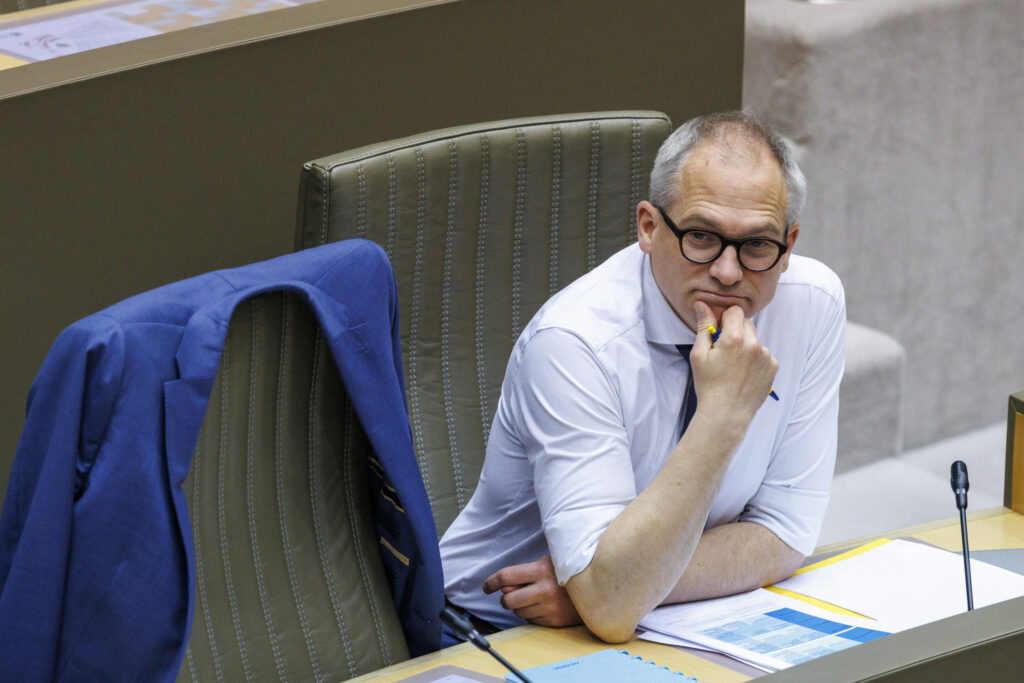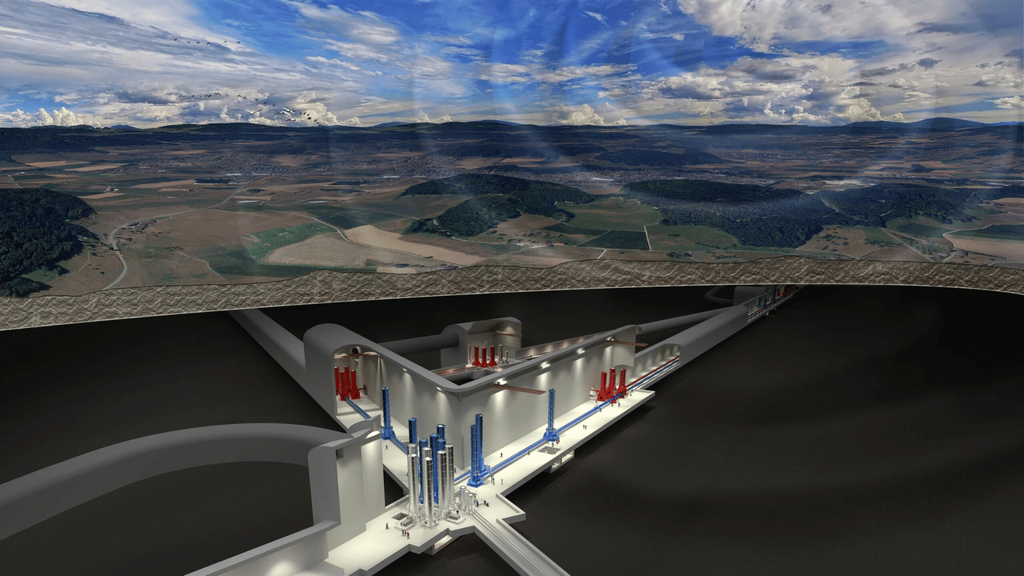The Einstein Telescope could provide productivity growth in Flanders of up to 0.22% – or €1.5 billion. The project could also create up to 925 jobs and lead to the formation of a high-tech cluster and a "scientific hotspot."
This is according to the socio-economic impact study by Ortelius, a subsidiary of Econopolis, commissioned by Flemish Minister-President Matthias Diependaele (N-VA) and POM (Provinciale Ontwikkelingsmaatschappij) Limburg.
Constructed underground, the Einstein Telescope will be Europe's most advanced observatory for gravitational waves. The aim is to conduct groundbreaking scientific research into the universe there.
The Netherlands, Belgium and Germany are jointly studying whether to host this observatory in the region around the triple-border point. Flanders has already earmarked €200 million for the 'Big Science' project.
Positive return on investment
Ortelius' socio-economic impact study is clear. "The candidacy is an opportunity that has not presented itself in the past and may not present itself again in the coming decades".
According to the study, the project will have a "positive return on investment," which also includes additional jobs. The study speaks of 5,021 to 12,142 job years (one job year is good for one full-time job for a full year) or converted to around 925 jobs. There is also talk of productivity growth that could peak at 0.22% or converted to €1.5 billion.
The formation of a high-tech cluster at the tri-border point could also boost innovation and economic growth. In doing so, the project could become "a showcase for STEM students".
The number of graduates in STEM fields could rise and the number of STEM PhDs would increase by 1.2% ten years after the initial investment.

Flemish Minister-President Matthias Diependaele (N-VA). Credit: Belga/Nicolas Maeterlinck
Flemish President-Minister Matthias Diependaele (N-VA) reacted enthusiastically to the research findings. He dreams of a kind of "Silicon Valley in the tri-state region".
"With the right incentives and support, we will form an innovation ecosystem that will impact Flanders for the next 50 years. The Einstein telescope is a Flemish priority, we need a new moonshot project that universities, companies and citizens can get behind," he said.
POM chair Tom Vandeput also sees the study as proof that the Einstein telescope is "an unseen opportunity" for Limburg. "This big science project will not only create thousands of job years, but also strengthen our province as a leading knowledge and innovation centre," he said.
Yet the project is not entirely without risks, the study also pointed out. Those risks could also negatively affect the return on investment. "Budget overruns due to increases in costs or poor project management could undermine public support," he said.
Lever for the whole of Flanders
The telescope's geographical location, at the tri-border point, also requires "close coordination between local, regional and national authorities," according to the researchers. "The efficiency of Einstein Telescope is therefore not guaranteed." However, there are ways to reduce those risks and increase returns, according to the researchers.
The total cost for the telescope is estimated at €2.3 billion. The construction of the telescope itself would take about nine years, after which measurements could be taken for an estimated 50 years.
The Chair of the Economy Committee and vice-chair of the special committee Andy Pieters (N-VA) hopes the impact study will make it clear that this is not a Limburg project, but a lever for innovation in the whole of Flanders.
"The Einstein Telescope can be a lever for innovation, research and employment for the whole of Flanders. The stronger the support for the candidacy in the whole of Flanders, the stronger we are in our representation abroad and the greater the chances of success."
Belgium, the Netherlands and Germany are not the only ones preparing their candidacy for the telescope. There was already competition from Italy's Sardinia and recently the German state of Saxony also applied. The decision normally falls in 2026.

